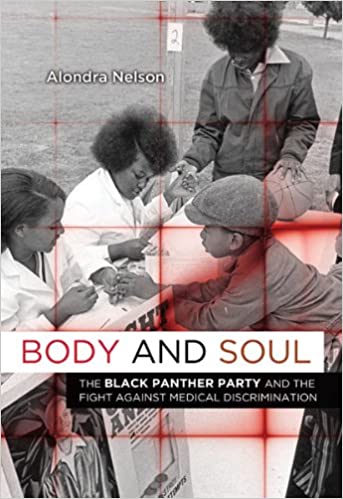
Body and Soul: The Black Panther Party and the Fight against Medical Discrimination (Book)
This book tells the little-known story of the Black Panther Party's health activism in the late 1960s.
Book Description
The Black Panther Party’s health activism–its network of free health clinics, its campaign to raise awareness about genetic disease, and its challenges to medical discrimination–was an expression of its founding political philosophy and also a recognition that poor blacks were both underserved by mainstream medicine and overexposed to its harms. Building on a long tradition of medical self-sufficiency among African Americans, the Panthers’ People’s Free Medical Clinics administered basic preventive care, tested for lead poisoning and hypertension, and helped with housing, employment, and social services. The Black Panther Party’s understanding of health as a basic human right and its engagement with the social implications of genetics anticipated current debates about the politics of health and race. That legacy–and that struggle–continues today in the commitment of health activists and the fight for universal health care.
The legacy of the Black Panther Party’s commitment to community health care, was a central aspect of its fight for social justice.
Author information
How to access book
- Borrow from your library – Search WorldCat and put in your location
- Purchase book from the publisher

